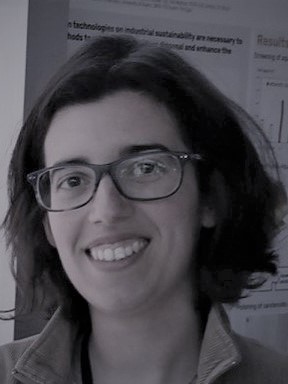resumo
In the past decade, the remarkable potential of ionic-liquid-based aqueous biphasic systems (IL-based ABSs) to extract and purify a large range of valued-added biocompounds has been demonstrated. However, the translation of lab-scale experiments to an industrial scale has been precluded by a poor understanding of the molecular-level mechanisms ruling the separation or partition of target compounds between the coexisting phases. To overcome this limitation, we carried out a systematic evaluation of specific interactions, induced by ILs and several salts used as phase-forming components, and their impact on the partition of several solutes in IL-based ABSs. To this end, the physicochemical characterization of ABSs composed of imidazolium-based ILs, three salts (Na2SO4, K2CO3 and K3C6H5O7) and water was performed. The ability of the coexisting phases to participate in different solute-solvent interactions (where solvent corresponds to each ABS phase) was estimated based on the Gibbs free energy of transfer of a methylene group between the phases in equilibrium, G(CH2), and on the Kamlet-Taft parameters - dipolarity/polarizability (*), hydrogen-bonding donor acidity () and hydrogen-bonding acceptor basicity () - of the coexisting phases. Relationships between the partition coefficients, the phase properties expressed as Kamlet-Taft parameters and COSMO-RS descriptors were established, highlighting the ability of ILs to establish specific interactions with given solutes. The assembled results clearly support the idea that the partition of solutes in IL-based ABSs is due to multiple effects resulting from both global solute-solvent and specific solute-IL interactions. Solute-IL specific interactions are often dominant in IL-based ABSs, explaining the higher partition coefficients, extraction efficiencies and selectivities observed with these systems when compared to more traditional ones majorly composed of polymers.
palavras-chave
SOLVATOCHROMIC COMPARISON METHOD; SOLVATION ENERGY RELATIONSHIP; HYDROGEN-BOND ACIDITY; 2-PHASE SYSTEMS; SOLVENT PROPERTIES; RELATIVE HYDROPHOBICITY; METHYLENE GROUP; EXTENDED SCALE; PEG-SALT; EXTRACTION
categoria
Chemistry; Physics
autores
Passos, H; Dinis, TBV; Capela, EV; Quental, MV; Gomes, J; Resende, J; Madeira, PP; Freire, MG; Coutinho, JAP
nossos autores
Grupos
G1 - Materiais Porosos e Nanossistemas
G4 - Materiais Renováveis e Economia Circular
G5 - Materiais Biomiméticos, Biológicos e Vivos
Projectos
CICECO - Aveiro Institute of Materials (UID/CTM/50011/2013)
Igy Technology: A Purication Platform using Ionic-Liquid-Based Aqueous Biphasic Systems (IGYPURTECH)
agradecimentos
This work was developed in the scope of the project CICECO-Aveiro Institute of Materials (Ref. FCT UID/CTM/50011/2013), financed by national funds through the FCT/MEC and when applicable co-financed by FEDER under the PT2020 Partnership Agreement. The authors also acknowledge FCT for the doctoral grants SFRH/BD/85248/2012, SFRH/BD/109765/2015, SFRH/BD/126202/2016, and SFRH/BD/130958/2017 of H. Passos, M. V. Quental, E. V. Capela, and T. B. V. Dinis, respectively, and postdoctoral fellowship SFRH/BPD/111113/2015 of P. P. Madeira. M. G. Freire acknowledges the European Research Council under the European Union's Seventh Framework Programme (FP7/2007-2013)/ERC grant agreement no. 337753.









